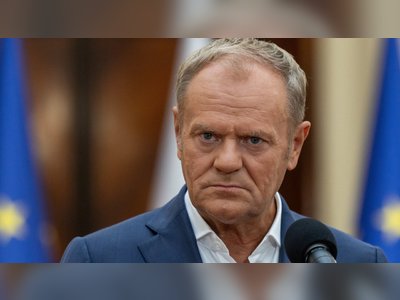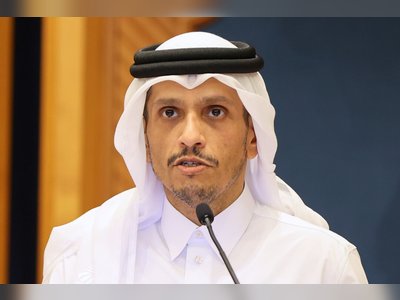
Hungary's Frozen Cohesion Funds Highlight Tensions in EU Rule of Law Framework
The European Union's decision to freeze significant funding for Hungary raises critical questions about the effectiveness of conditionality in enforcing rule of law principles.
Hungary's ongoing conflict with the European Union (EU) has led to the suspension of approximately €22 billion in EU cohesion funds, a key financial resource earmarked for reducing economic and social disparities within the bloc.
The Cohesion Policy, integral to EU unity and development, has significantly benefitted Hungary, enabling substantial investments in infrastructure, education, and modernization aimed at closing the gap with wealthier Western European nations.
However, Hungary's dispute centers on allegations regarding breaches of rule of law principles, particularly concerning judicial independence, asylum policies, the treatment of LGBTQ+ individuals, and academic freedom.
In light of these issues, the EU enacted measures that not only stalled funding but also stirred a broader debate about whether financial penalties genuinely promote reform or exacerbate divisions.
In 2023, after Hungary reevaluated its position regarding EU aid to Ukraine, the EU released €10 billion from the frozen funds, yet a substantial amount remains inaccessible.
The European Commission has enacted funding suspensions totaling over €168 billion across various initiatives, reflecting its commitment to uphold rule of law standards in Hungary and Poland, which collectively represents about 16-17% of their Gross Domestic Product (GDP).
Experts such as Zselyke Csaky of the Centre for European Reform express skepticism about the efficacy of conditionality as a long-term strategy.
The limited success of legal reforms in Hungary, as contrasted by more responsive changes in Poland, raises questions about the viability of such approaches, especially if other wealthier EU member states begin to violate shared values.
Csaky argues that for conditionality to be impactful, it must be applied consistently and transparently, with clear connections to meaningful reforms.
In Hungary, where civic opposition has often deemed government responses to EU pressures superficial, there is a sense that Prime Minister Viktor Orbán's administration is adept at framing these conflicts to its advantage.
As highlighted by Tibor Dessewffy from Eötvös Loránd University, Hungary’s stance on contentious issues such as the sanctuary of Pride events has placed EU diplomats in a challenging position, forcing them to navigate a political landscape where support for LGBTQ+ rights could play into the narrative of Western moral decay, as portrayed by Orbán.
Dessewffy notes a transforming political environment within Hungary, where opposition parties are increasingly focusing on economic challenges rather than being drawn into cultural disputes.
This shift is emblematic of a broader evolution in how the EU might address Hungary's continued defiance of collective values, potentially leading to the emergence of more agile, smaller alliances that could operate independently of Hungary, reflecting a 'two-speed Europe' dynamic not driven by elite interests but as a reaction to the obstructionism of economically weaker member states.
In efforts to regain access to over €750 million in EU funds, Hungary is reportedly employing various legal and technical maneuvers within EU budgetary frameworks, including reallocating funds to less scrutinized areas and seeking to reprogram budget allocations during midterm reviews.
These strategies have alarmed member states such as Germany and France, which fear that such actions could undermine the fundamental conditionality mechanisms intended to enforce adherence to democratic standards.
In parallel developments, at least 14 EU member states are preparing to challenge Hungary’s recent constitutional amendments and limits on basic rights, which have raised concerns about undermining EU values.
Ongoing discussions amongst EU foreign ministers are expected to address Hungary’s rule of law situation, emphasizing that many diplomats foresee heightened criticism directed at Budapest.
The European Commission has called for the withdrawal of legislation perceived to hinder transparency, further complicating the relationship between Hungary and the EU. The long-pending article 7 procedure against Hungary continues to assess the risks of severe breaches of fundamental EU values, yet a consensus among member states needed to take decisive actions remains elusive.
Various nations express hesitance, owing to their own legal and governance challenges.
As discussions progress, some EU parliamentarians advocate for the freezing of all EU funding to Hungary in light of what they label as a corrupt regime that actively undermines European values.
This call for action becomes more urgent with Hungary’s legislative proposals seen as hostile towards civil society and independent media.
Amidst these tensions, the overarching challenge for the EU remains balancing pressure with the necessity of maintaining cohesion among its diverse member states.
The Cohesion Policy, integral to EU unity and development, has significantly benefitted Hungary, enabling substantial investments in infrastructure, education, and modernization aimed at closing the gap with wealthier Western European nations.
However, Hungary's dispute centers on allegations regarding breaches of rule of law principles, particularly concerning judicial independence, asylum policies, the treatment of LGBTQ+ individuals, and academic freedom.
In light of these issues, the EU enacted measures that not only stalled funding but also stirred a broader debate about whether financial penalties genuinely promote reform or exacerbate divisions.
In 2023, after Hungary reevaluated its position regarding EU aid to Ukraine, the EU released €10 billion from the frozen funds, yet a substantial amount remains inaccessible.
The European Commission has enacted funding suspensions totaling over €168 billion across various initiatives, reflecting its commitment to uphold rule of law standards in Hungary and Poland, which collectively represents about 16-17% of their Gross Domestic Product (GDP).
Experts such as Zselyke Csaky of the Centre for European Reform express skepticism about the efficacy of conditionality as a long-term strategy.
The limited success of legal reforms in Hungary, as contrasted by more responsive changes in Poland, raises questions about the viability of such approaches, especially if other wealthier EU member states begin to violate shared values.
Csaky argues that for conditionality to be impactful, it must be applied consistently and transparently, with clear connections to meaningful reforms.
In Hungary, where civic opposition has often deemed government responses to EU pressures superficial, there is a sense that Prime Minister Viktor Orbán's administration is adept at framing these conflicts to its advantage.
As highlighted by Tibor Dessewffy from Eötvös Loránd University, Hungary’s stance on contentious issues such as the sanctuary of Pride events has placed EU diplomats in a challenging position, forcing them to navigate a political landscape where support for LGBTQ+ rights could play into the narrative of Western moral decay, as portrayed by Orbán.
Dessewffy notes a transforming political environment within Hungary, where opposition parties are increasingly focusing on economic challenges rather than being drawn into cultural disputes.
This shift is emblematic of a broader evolution in how the EU might address Hungary's continued defiance of collective values, potentially leading to the emergence of more agile, smaller alliances that could operate independently of Hungary, reflecting a 'two-speed Europe' dynamic not driven by elite interests but as a reaction to the obstructionism of economically weaker member states.
In efforts to regain access to over €750 million in EU funds, Hungary is reportedly employing various legal and technical maneuvers within EU budgetary frameworks, including reallocating funds to less scrutinized areas and seeking to reprogram budget allocations during midterm reviews.
These strategies have alarmed member states such as Germany and France, which fear that such actions could undermine the fundamental conditionality mechanisms intended to enforce adherence to democratic standards.
In parallel developments, at least 14 EU member states are preparing to challenge Hungary’s recent constitutional amendments and limits on basic rights, which have raised concerns about undermining EU values.
Ongoing discussions amongst EU foreign ministers are expected to address Hungary’s rule of law situation, emphasizing that many diplomats foresee heightened criticism directed at Budapest.
The European Commission has called for the withdrawal of legislation perceived to hinder transparency, further complicating the relationship between Hungary and the EU. The long-pending article 7 procedure against Hungary continues to assess the risks of severe breaches of fundamental EU values, yet a consensus among member states needed to take decisive actions remains elusive.
Various nations express hesitance, owing to their own legal and governance challenges.
As discussions progress, some EU parliamentarians advocate for the freezing of all EU funding to Hungary in light of what they label as a corrupt regime that actively undermines European values.
This call for action becomes more urgent with Hungary’s legislative proposals seen as hostile towards civil society and independent media.
Amidst these tensions, the overarching challenge for the EU remains balancing pressure with the necessity of maintaining cohesion among its diverse member states.
AI Disclaimer: An advanced artificial intelligence (AI) system generated the content of this page on its own. This innovative technology conducts extensive research from a variety of reliable sources, performs rigorous fact-checking and verification, cleans up and balances biased or manipulated content, and presents a minimal factual summary that is just enough yet essential for you to function as an informed and educated citizen. Please keep in mind, however, that this system is an evolving technology, and as a result, the article may contain accidental inaccuracies or errors. We urge you to help us improve our site by reporting any inaccuracies you find using the "Contact Us" link at the bottom of this page. Your helpful feedback helps us improve our system and deliver more precise content. When you find an article of interest here, please look for the full and extensive coverage of this topic in traditional news sources, as they are written by professional journalists that we try to support, not replace. We appreciate your understanding and assistance.











